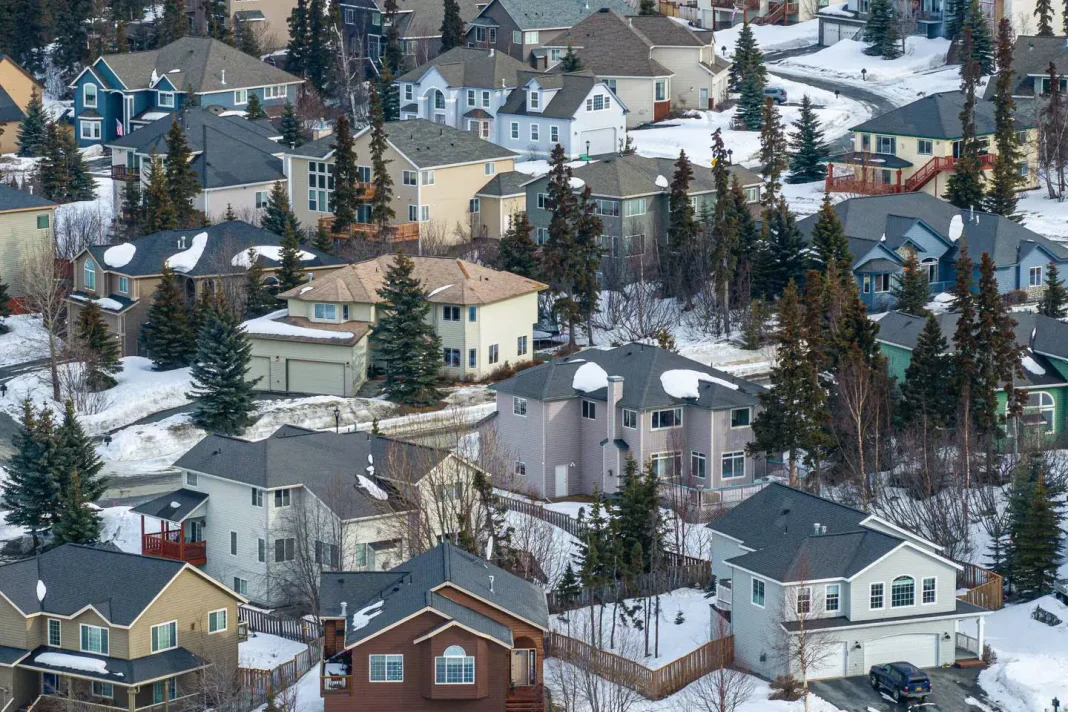There’s no denying the fact that Anchorage is in need of more housing, both for rental and for purchase. The shortage is especially evident in high-demand neighborhoods and communities like Girdwood, where there is little available land for new construction and a high percentage of owners who are absent for at least part of the year. In an attempt to free up some housing availability, the Assembly this past week narrowly passed a measure that would have imposed new regulations on short-term rental properties. The problem? The new rules would be a major violation of Anchorage residents’ autonomy and would have caused more problems than they solved.
The impulse to blame the short-term rental market that has arisen in the past decade for Anchorage’s housing shortfall is strong — Big Tech is a convenient bogeyman upon which to pin a problem that existed long before apps like Airbnb and VRBO were operating here. Lest we forget, in 2010, Anchorage’s housing vacancy rate was just 1.5% — nearly identical to the 1.4% vacancy rate in 2021. Back in 2010, although short-term rental apps had just been released, they were in their infancy; they certainly weren’t contributing to Anchorage’s housing crunch.
These days, it’s a different story; there’s no denying that many Anchorage properties are made available as short-term rentals at least sometimes. But how that affects the municipality’s overall housing availability is far less clear, and murkier still is whether the Assembly’s ordinance would have made any difference (not altogether likely) or simply confused and burdened rental owners (extremely likely). Additionally, short-term rentals are an important piece of Anchorage’s hospitality mix for visitors, especially during the busy summer months, so economic reasons speak in favor of maintaining market freedom for the properties.
For their part, the proposal’s sponsors Meg Zaletel and Randy Sulte have said that forcing homeowners to register with the city before renting their property would simply allow the city to gather information about this segment of the housing market. But — within reason — it’s none of their business what people do with their property. Asking homeowners to register with the city is just the first step to more broad regulation, something Anchorage should not entertain. In Alaska, we have a strong appetite for private property rights and all property owners should be free to make productive use of their homes and land as they see fit.
Fortunately for rental owners and would-be entrepreneurs, Mayor Dave Bronson vetoed the ordinance shortly after it passed, and Assembly members — even the measure’s sponsors — aren’t planning on trying to override that veto. Some of those who initially supported the measure, like Assembly member Daniel Volland, appear to have belatedly realized that it’s better to make policy after assessing the facts of the situation rather than the other way around.
New regulations from the Assembly aren’t necessary to rein in short-term rentals in neighborhoods and communities where residents deem them a problem, after all. As with other activities, a community finds counter to its residents’ enjoyment of their property, short-term rentals can be barred via a homeowners’ association or deed restrictions when houses are sold. Those solutions, rather than a government-mandated hodgepodge of registration fees, insurance rules and fine schedules, are a proper avenue for neighbors to work out what should and shouldn’t be permitted in their part of the city.
The Assembly and municipal government do have a role in helping ease Anchorage’s housing shortage — but they should focus on making housing development easier (as they did in easing rules governing accessory dwelling units last year, or by simplifying city zoning for residential developments) rather than throwing up roadblocks to entrepreneurship. In matters like this, government does best when it stays out of people’s way.























![Green Building Materials Market Trends [2023-2030]](https://housingcable.ng/wp-content/uploads/2022/04/csrgreen-building_Cisco_04222022-218x150.png)










